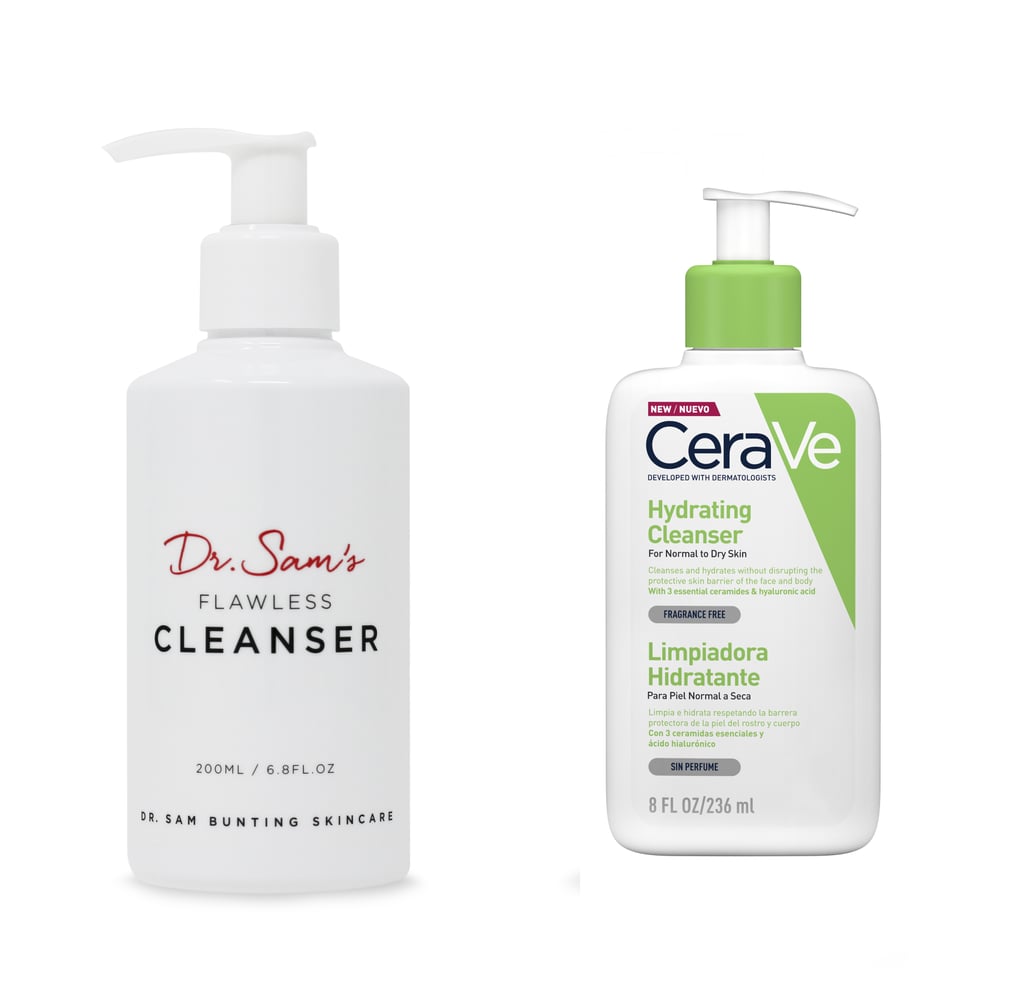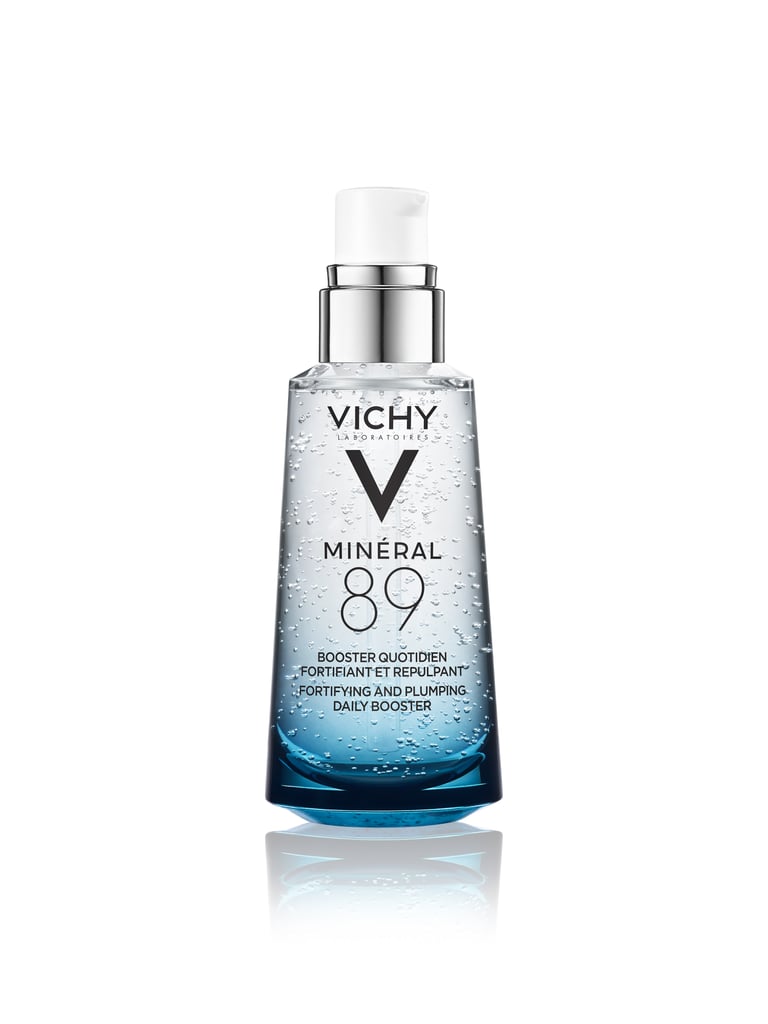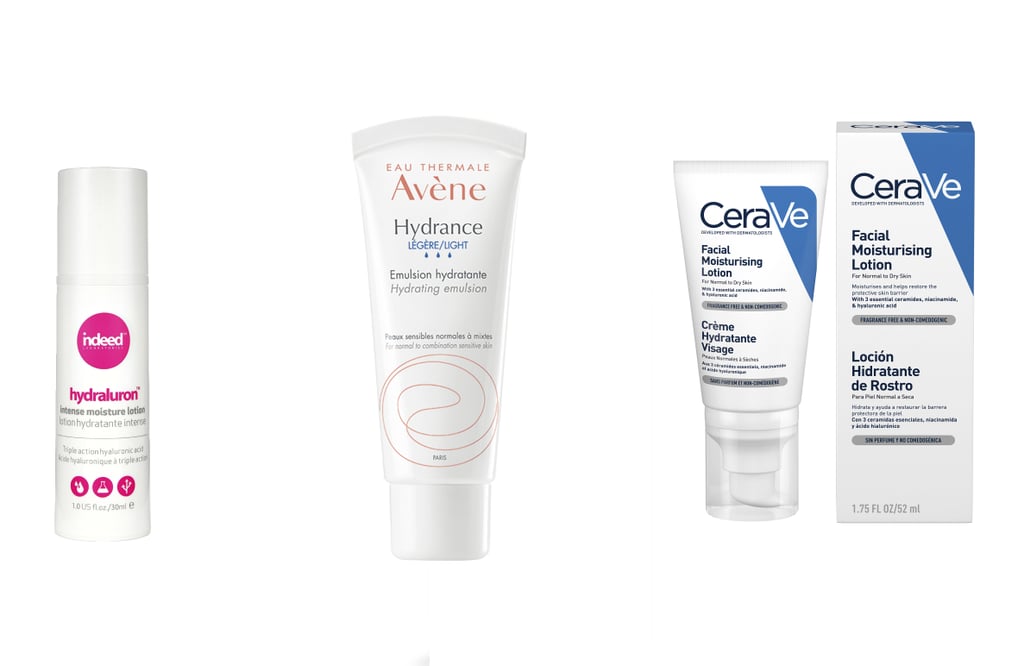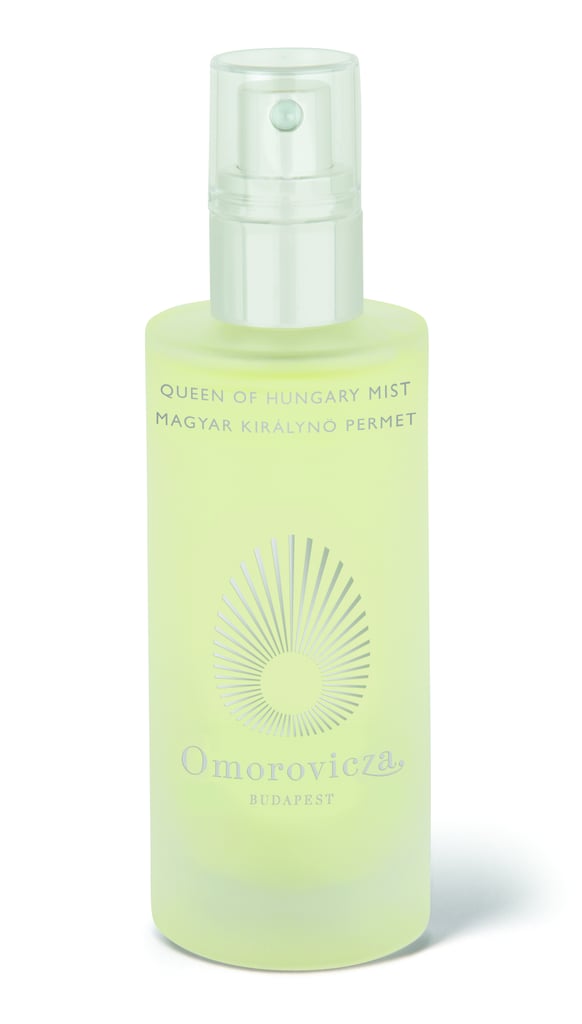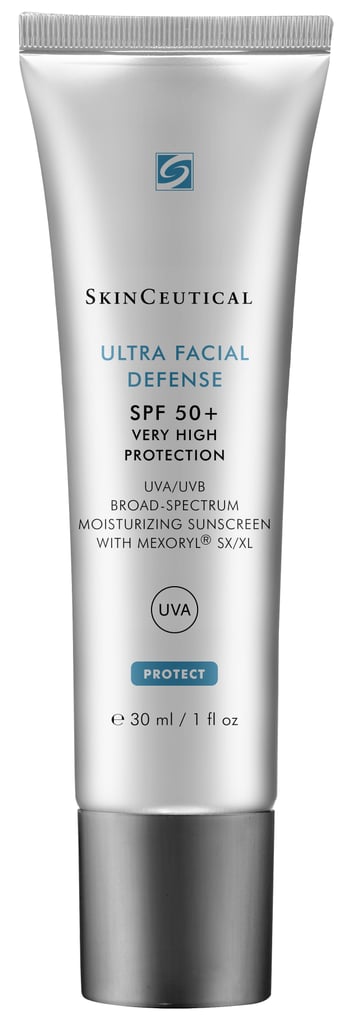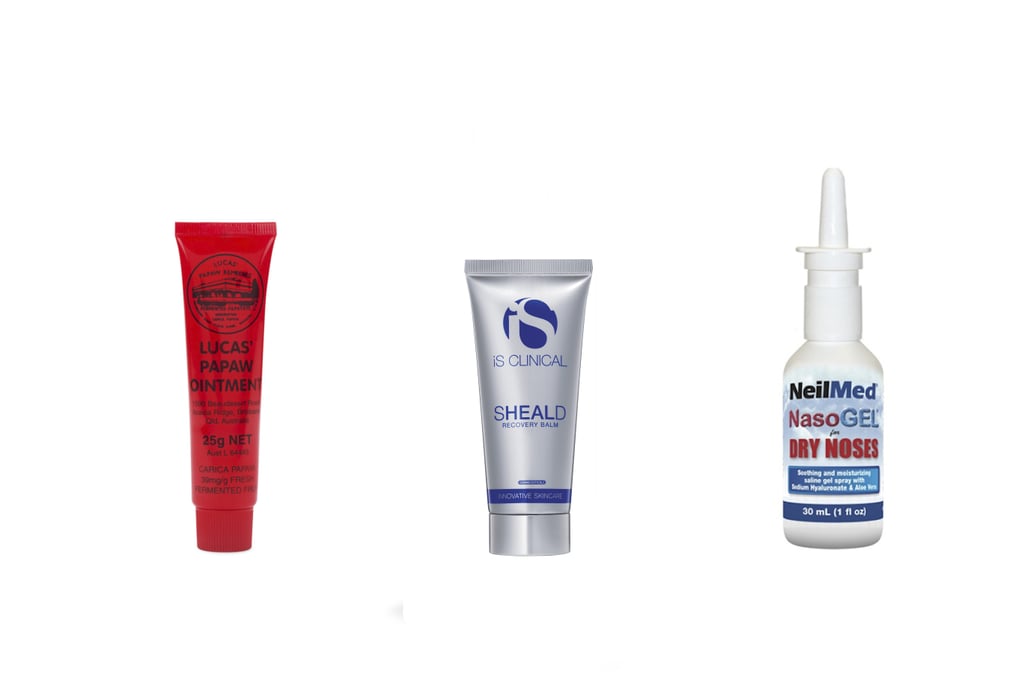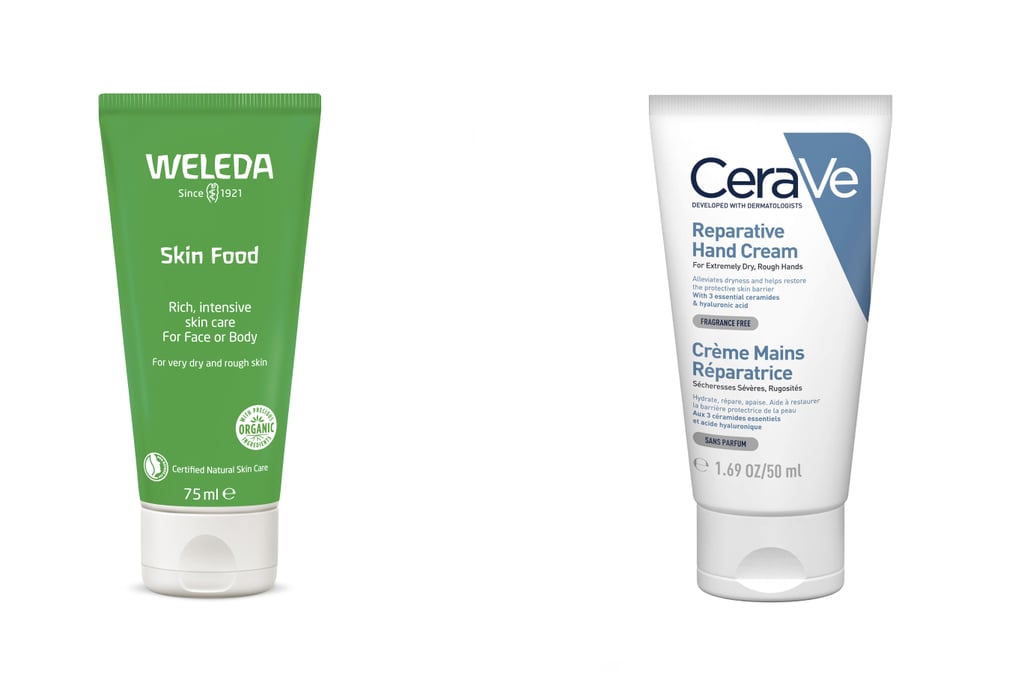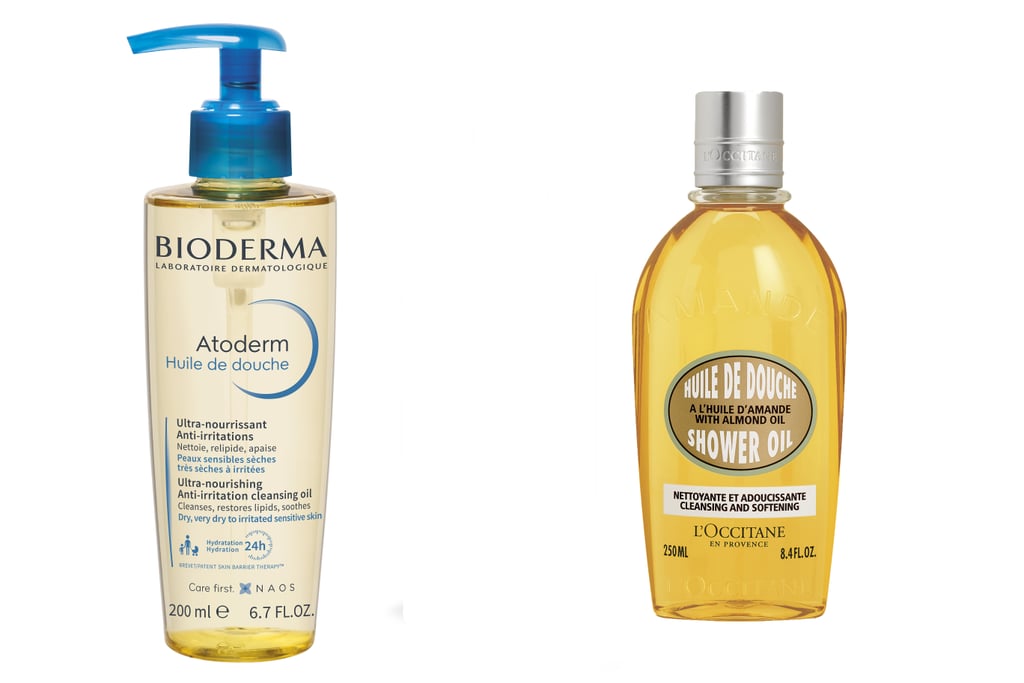I've had acne for over a decade (thanks hormones and PCOS [1]), and through the years, I've learned to (mostly) control my breakouts and oiliness with the appropriate products. That all changed six months ago when I started taking the intense oral acne medication Isotretinoin — commonly known as Roaccutane — and all of a sudden I had to figure out how to deal with very dry skin [2], which is something I've never had before. My lips have suffered the most — I've experienced severe dryness around my eyes, nose, face, and body, all of which has resulted in a lot of peeling. To combat this, I've had to get serious about incorporating superhydrating products into my skin-care routine, as well as really simplifying things, making sure every product is gentle, fragrance-free, and, as best as possible, free of strong active ingredients.
An oral medication, Isotretinoin is an internal retinoid (it's retinoic acid, to be exact), which means it's a derivative of vitamin A [3]. I took Roaccutane about nine years ago, but at the end of 2019, together with my doctor, we decided a second round might be beneficial as I got tired of new spots and the never-ending cycle of pigmentation they left behind. It took me about a year to agree to do a second round, due to the very severe contraindications, ranging from dry skin and dry eyes, to painful joints, and even depression. I knew that with proper care and the right ingredients and products, I could handle the overall dryness. Regardless, it wasn't easy going from normal/oily skin to dry.
Dr Anjali Mahto [4], London-based consultant dermatologist, has been on oral Isotretinoin herself and explains why it causes dryness. "Isotretinoin reduces the size and activity of the sebaceous or oil-producing glands in the skin leading to dryness. Lip and skin dryness are extremely common side effects of the medication, and most people on the medication will suffer; it can usually be managed with appropriate skin care and lip care."
"As a general rule, look for products targeted towards sensitive, dry, or fragile skin," Dr Mahto says of the types of cleansers, creams, and lotions to use while on the medication. "Opt for fragrance-free cleansers and moisturisers, stripped-back skin care, and be cautious of overlayering as the skin is sensitive and easily irritated."
As previously mentioned, a focus on hydration and nonactive ingredients is very important. "Keep skin care simple and basic, avoiding 'active' ingredients," says Dr Mahto. "The skin is fragile on Isotretinoin, and many of these products can cause dryness, irritation, peeling, or flaking. Avoid retinoid creams (vitamin A), AHAs (glycolic and lactic acid), as well as BHAs such as salicylic acid. And speak directly to your prescribing consultant dermatologist if you are unclear about options," she adds.
My skin isn't sensitive at all, but because of the treatment, I now take extra care with what ingredients I use, so that I don't irritate it. It took some trial and error to find products that keep my skin hydrated and happy, but once I did, it's been much easier to manage the dryness and flaking as I complete the medication. Keep reading to discover all the products I've incorporated into my routine whilst on Roaccutane, along with a few recommendations from Dr. Mahto.
Isotretinoin Dry Skin Treatments: A Gentle Cleanser
I still double cleanse [5] at night even if I'm not wearing makeup, as I want to ensure my skin is clean and that I won't get any breakouts from blocked pores due to sweating or sunscreen. As I can't use any physical or chemical exfoliation, cleansing well is incredibly important, but it has to be gentle. I use a few different cleansers depending on the day, but Dr Sam's Flawless Cleanser [6] (£16) and the CeraVe Hydrating Cleanser [7] (£8) are my top choices. And a quick tip: the CeraVe can be used to wash hands and body, too, which is particularly helpful when those areas feel dry.
Mahto's favourite cleansers include the CeraVe Hydrating Cleanser, La Roche-Posay Toleriane Dermo-Cleanser [8] (£12.50), Eau Thermale Avène Extremely Gentle Cleansing Lotion [9] (£11.50), and Glossier Milky Jelly Cleanser [10] (£15).
Isotretinoin Dry Skin Treatments: A Hydrating Serum
Hyaluronic acid is one of my go-to ingredients, and I apply one or two layers of the Vichy Minéral 89 [11] (£25) morning and night before moisturising. Any hyaluronic acid [12] does the job, but this has a jelly texture that I really like. It's also reasonably priced, which is important considering how much I use daily (which is a lot).
Isotretinoin Dry Skin Treatments: A Soothing Moisturiser
I've been using a few different moisturisers since going on Roaccutane. It's tricky to choose just one as it all depends on the texture and how I want my skin to feel after, which is different at night than during the day, and whether it's winter or spring. The Indeed Labs Hydraluron Intense Moisture Lotion [13] (£25) and CeraVe Facial Moisturiser [14] (£10) are a bit thicker, and I prefer them for the colder months or at night.
For daytime, I then switch to the Eau Thermale Avène Hydrance Light Cream [15] (£15.50). The fragrance-free formula feels little lighter on my face but is still quite rich; personally, I like looking constantly dewy, so in general I favour a richer cream.
Some of Mahto's favourites include La Roche-Posay Toleriane Ultra Fluid [16] (£18.50) or Effaclar H Moisturiser [17] (£17), Medik8 Ultimate Recovery Intense [18] (£37), and CeraVe Moisturising Cream [19] (£7).
Isotretinoin Dry Skin Treatments: A Calming Mist
I like to use a hydrating mist through the day, which not only works to combat the dryness caused by central heating but also cools my skin down during the day. I'd be happy using any mist, but my favourite is the Omorovicza Queen of Hungary Mist [20] (£59) as I can feel and see a difference in my skin, thanks to the rose and the Hungarian thermal water included in the formula.
Isotretinoin Dry Skin Treatments: Broad-Spectrum Sunscreen SPF 50
Sunscreen is also incredibly important when on Roaccutane, even more so than normal, as vitamin A can make the skin photosensitive [21] (ie. increased sun sensitivity), particularly when it's in oral form. "Ideally use a daily broad-spectrum sunscreen with a minimum SPF 30 to the face and any other exposed areas," says Mahto, who recommends Jan Marini Physical Protectant [22] (£45), SkinCeuticals Mineral Defense [23] (£41), Eau Thermale Avène Very High Protection [24] (£17.50), Heliocare Gel Cream Light [25] (£25)."
For me, sunscreen that features a nondrying base makes such a difference for my skin. My favourite one is the SkinCeuticals Ultra Facial Defense Sunscreen SPF 50 [26] (£41) as it feels moisturising enough even on days when I might have to rush out the door and have to skip the face cream (which I really try never to do). It's imperative to use an SPF 50 while on the medication as your skin is more sensitive to the sun. I'd normally wear SPF 30 in the winter but wouldn't risk it on this occasion.
Isotretinoin Dry Skin Treatments:: A Thick Lip Balm
Dry lips, eyes, and nostrils are the biggest issues I've faced during my treatment. I always have two or more lip balms in my bag at any time and currently I need them more than ever. Unfortunately, some days, even my thickest balms aren't enough. Lucas Papaw Ointment [27] (£7) is the multiuse balm I always use as it's occlusive (meaning it keeps moisture in), and I alternate with the iS Clinical Sheald Recovery Balm [28] (£20), which is not created as a lip balm but works very well. During the day I top if off with a lip balm with SPF — I have no particular preference on the brand.
I also apply the Lucas Papaw in my nostrils at night to avoid the (minor) nose bleeds I've been getting. For the daytime, I discovered a salt-free nose spray on Amazon, NasoGel Spray [29] (£9), which quickly became mine and my nostrils' best friend.
As for my eyes, unfortunately my dermatologist didn't give me any prescription drops so I've been using the Hycosan Eye Drops [30] (£12). I've tried countless eye drops, and this is the only product that gave me some relief.
I didn't find many solutions in this area, so I asked Dr Mahto for her advice. "For those suffering with dry eyes, there are a number of products available over-the-counter from pharmacies which can help, including Optrex Intensive Eye Drops for Dry Eyes [31] (£45). If you are a contact-lens wearer or have any underlying ophthalmological issues, then you should let your dispensing pharmacist know as these may not be suitable. Also, if you do wear contact lenses daily and are suffering with dry eye, then reduce the hours these are worn and switch to glasses instead where possible."
"I recommend patients use a small amount of Vaseline to help lubricate the nasal passages or saline nasal sprays, which can be purchased over-the-counter to help with symptoms of nasal dryness," adds Dr Mahto.
Isotretinoin Dry Skin Treatments: A Nourishing Hand Cream
I sometimes forget about moisturising my hands, but Roaccutane reminded me I need to take better care of them, especially with the amount of hand-washing and sanitising I've been doing the past few months. I developed a little patch of dermatitis (which is very common while on the medication), and the combination of Weleda Skin Food [32] (£13) and CeraVe Soothing and Repairing Hand Cream [33] (£4.50) fixed it in a few days.
Isotretinoin Dry Skin Treatments: A (Very) Moisturising Body Wash
A dry-skin saver has been using a shower oil that moisturises my body before even applying cream; I alternate between the Bioderma Atoderm Shower Oil [34] (£9) and L'Occitane Almond Shower Oil [35] (£19.50). A note: for the L'Occitane, I only get the refills as they contain less plastic, and I just keep an empty pump bottle and refill it!
